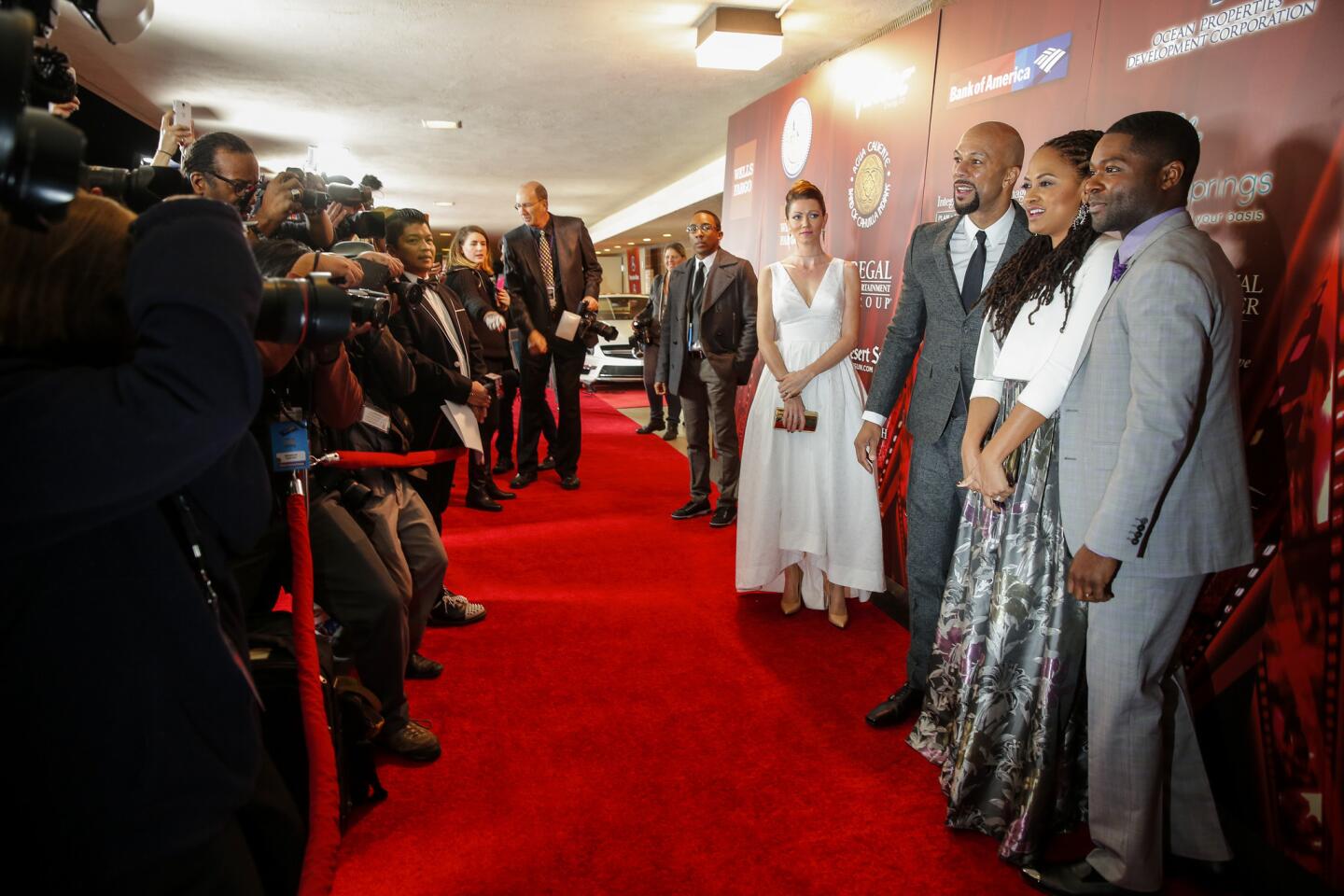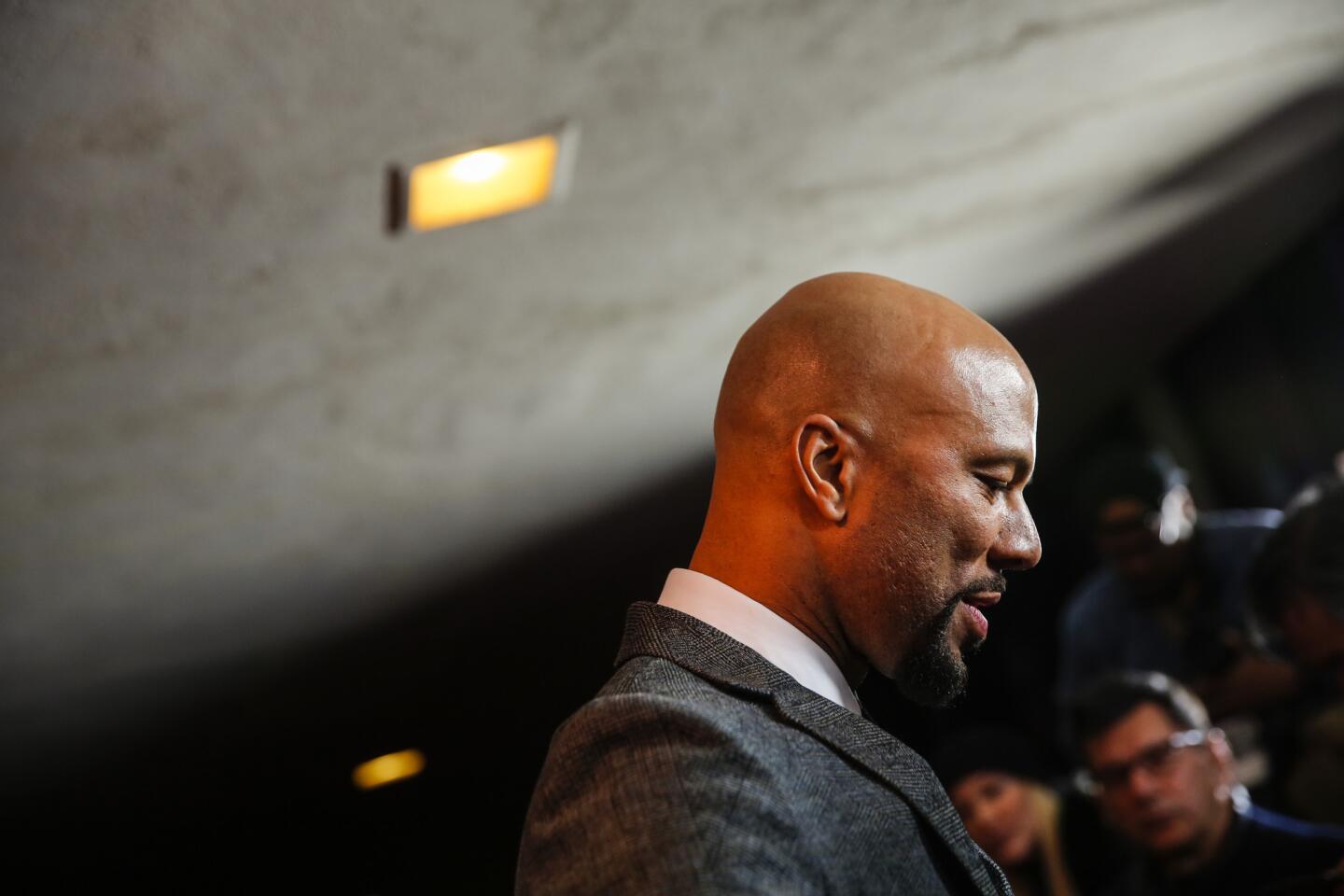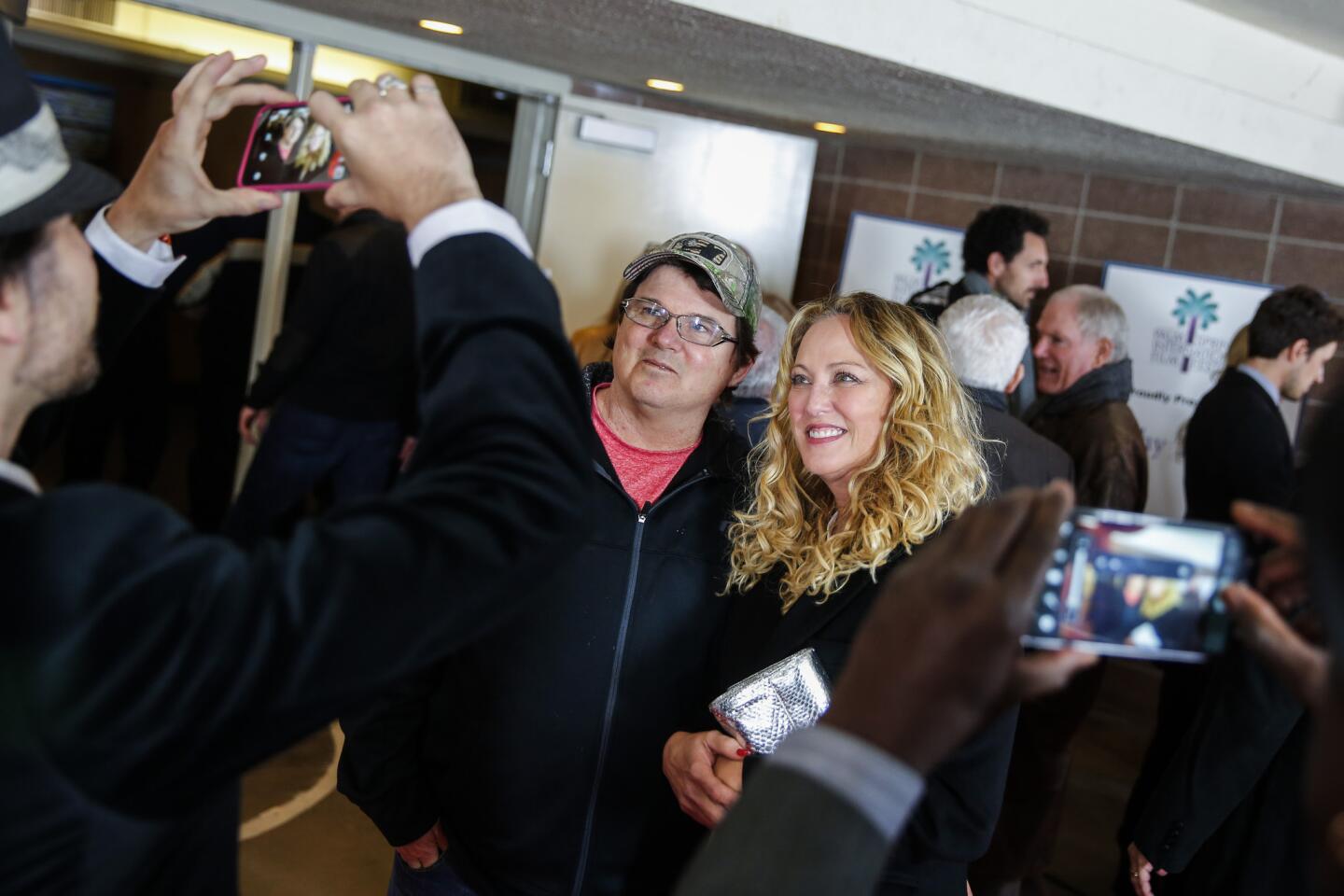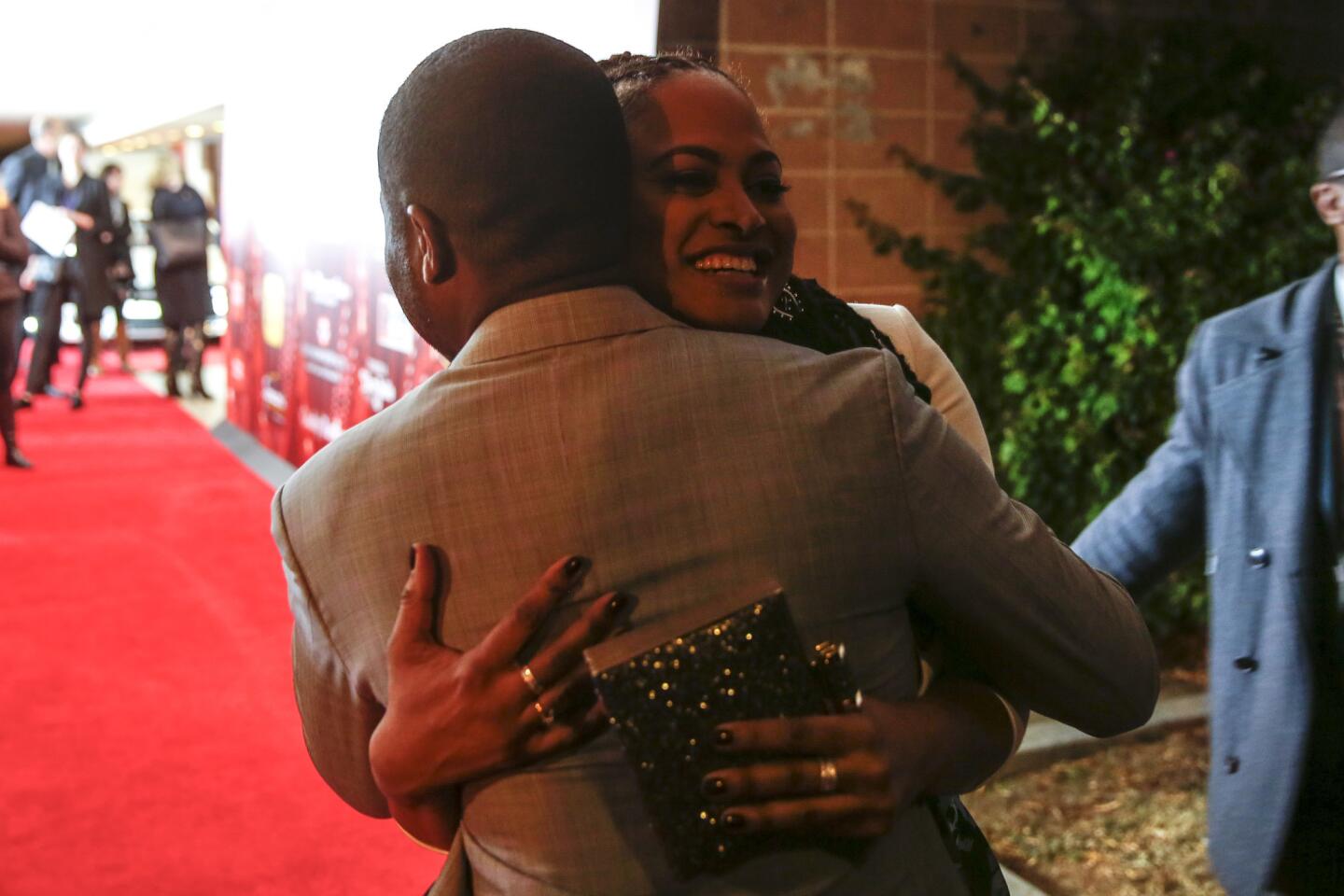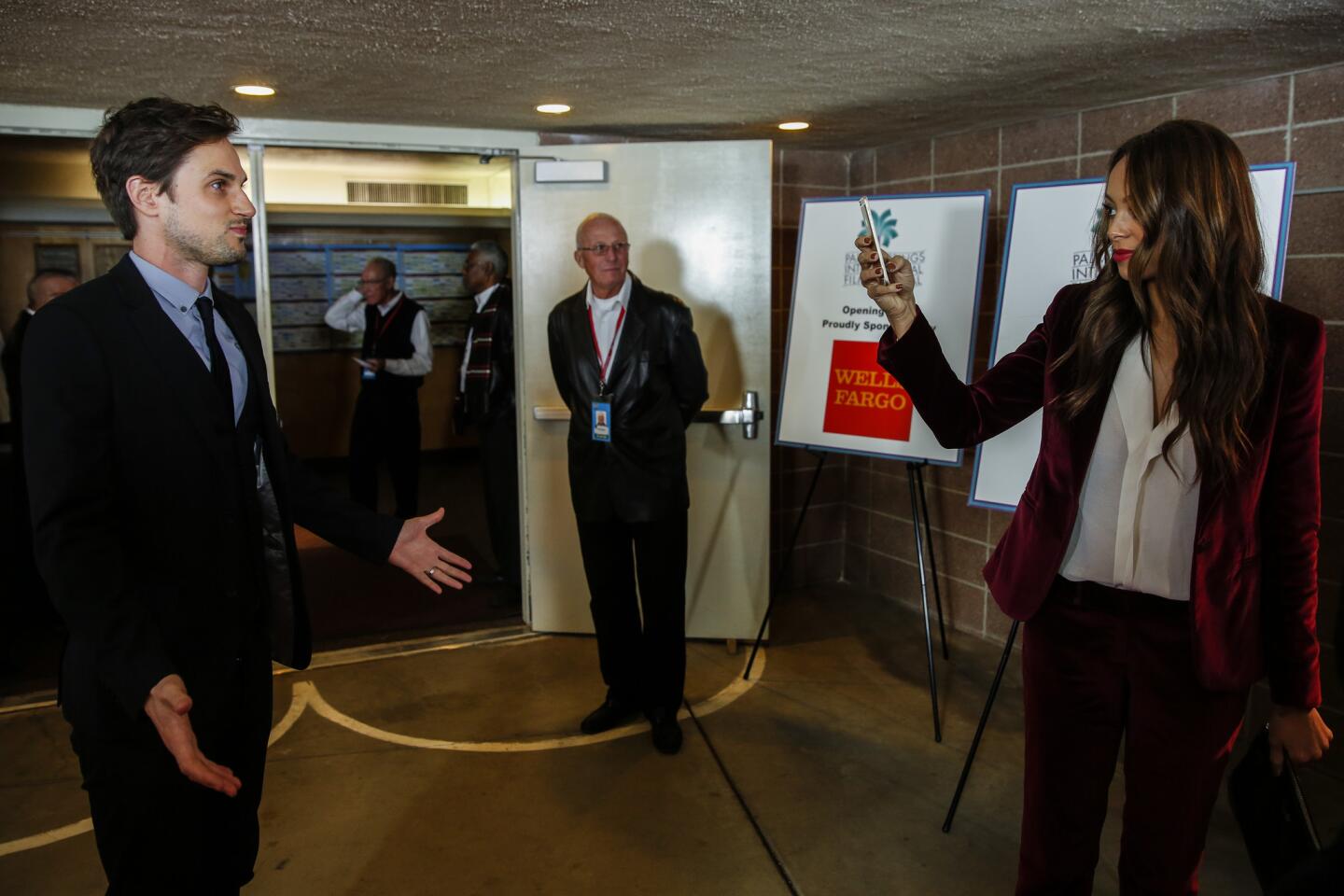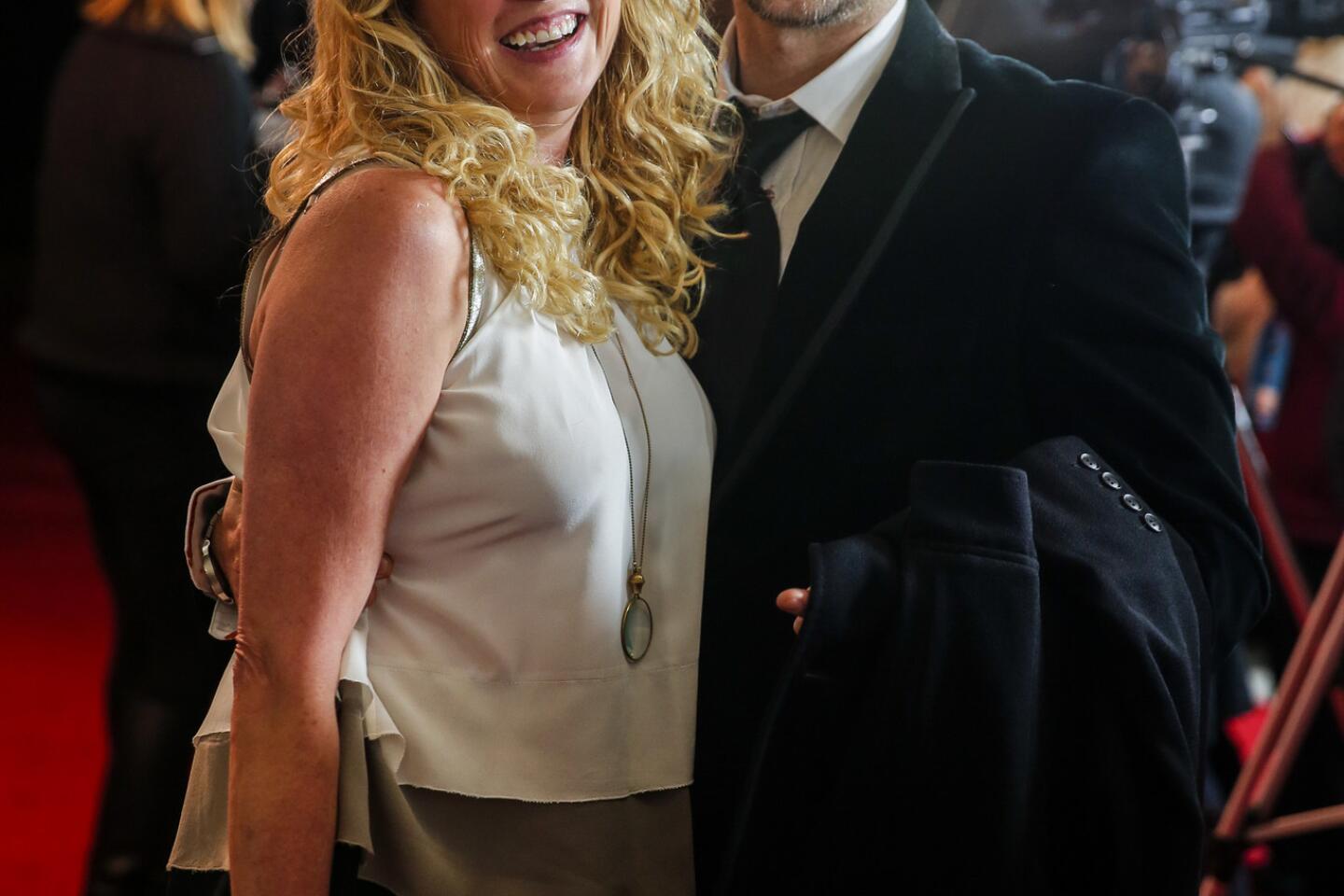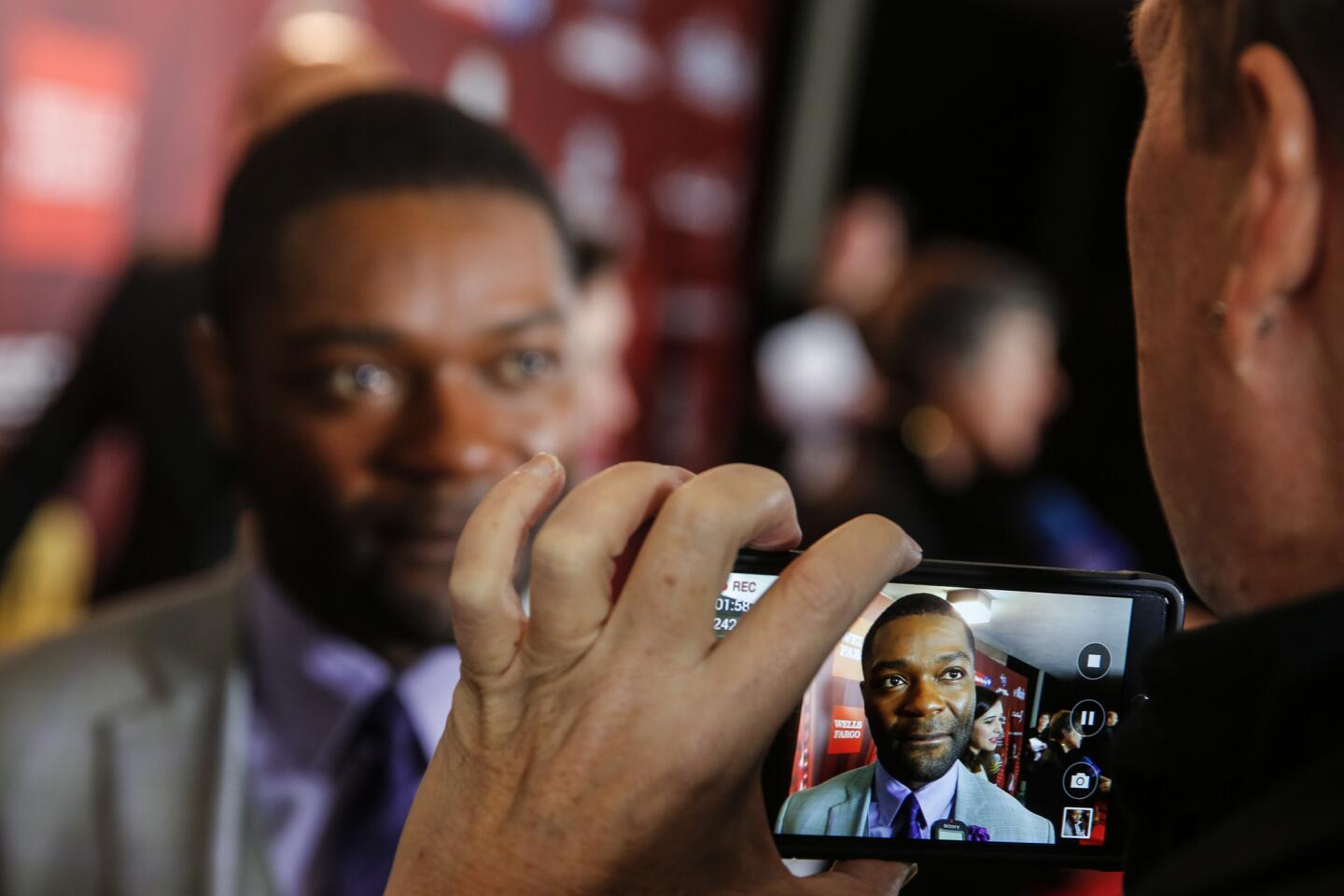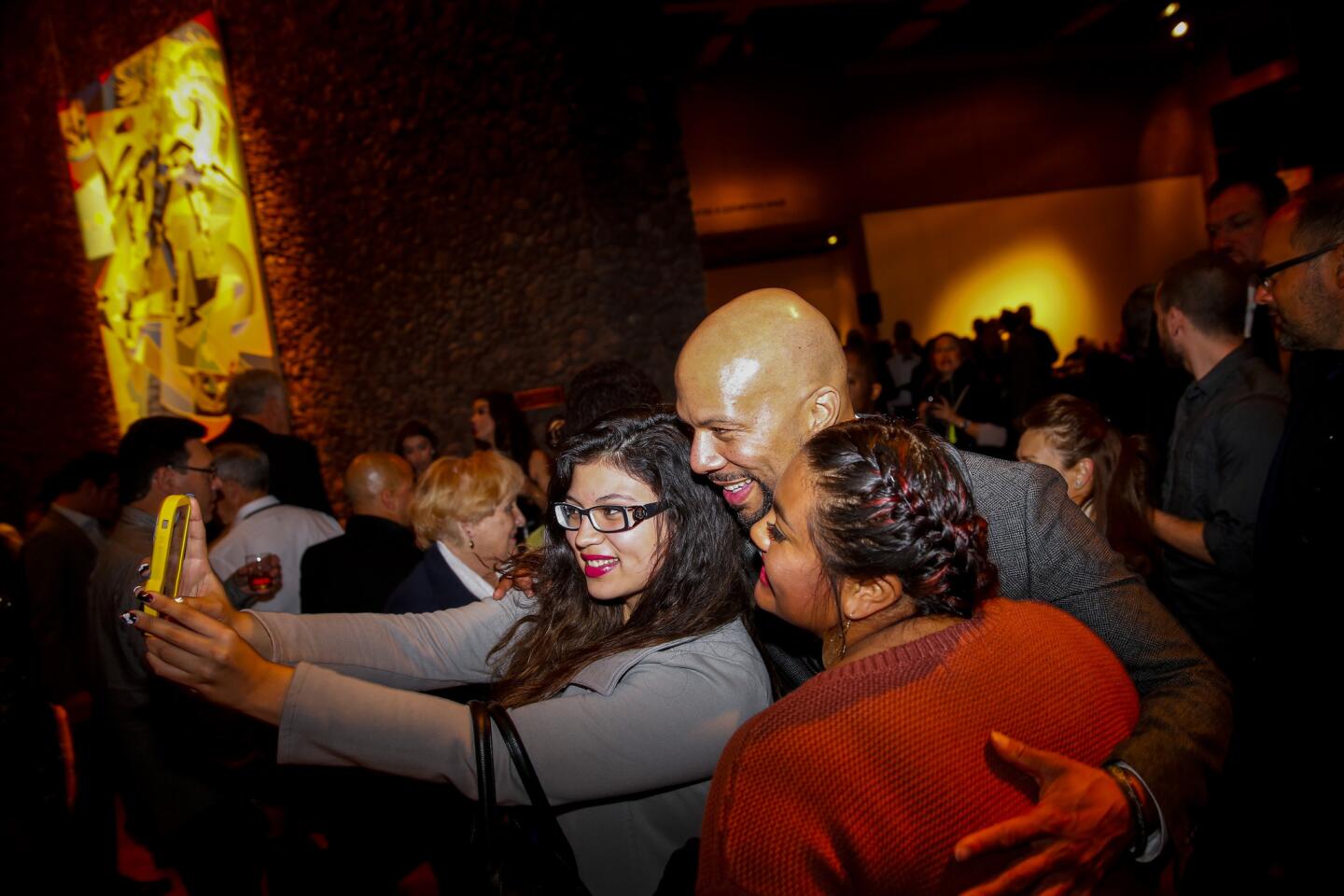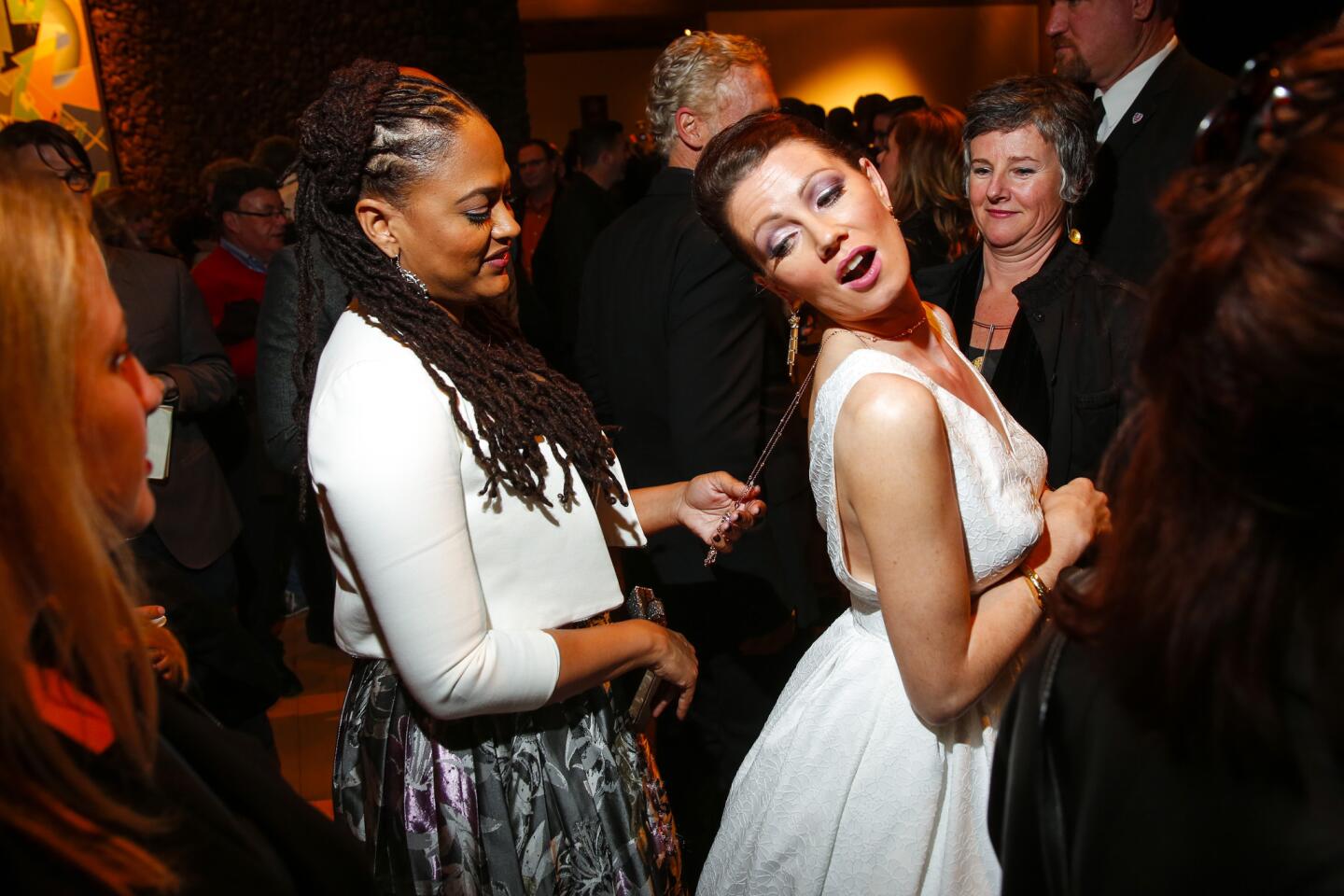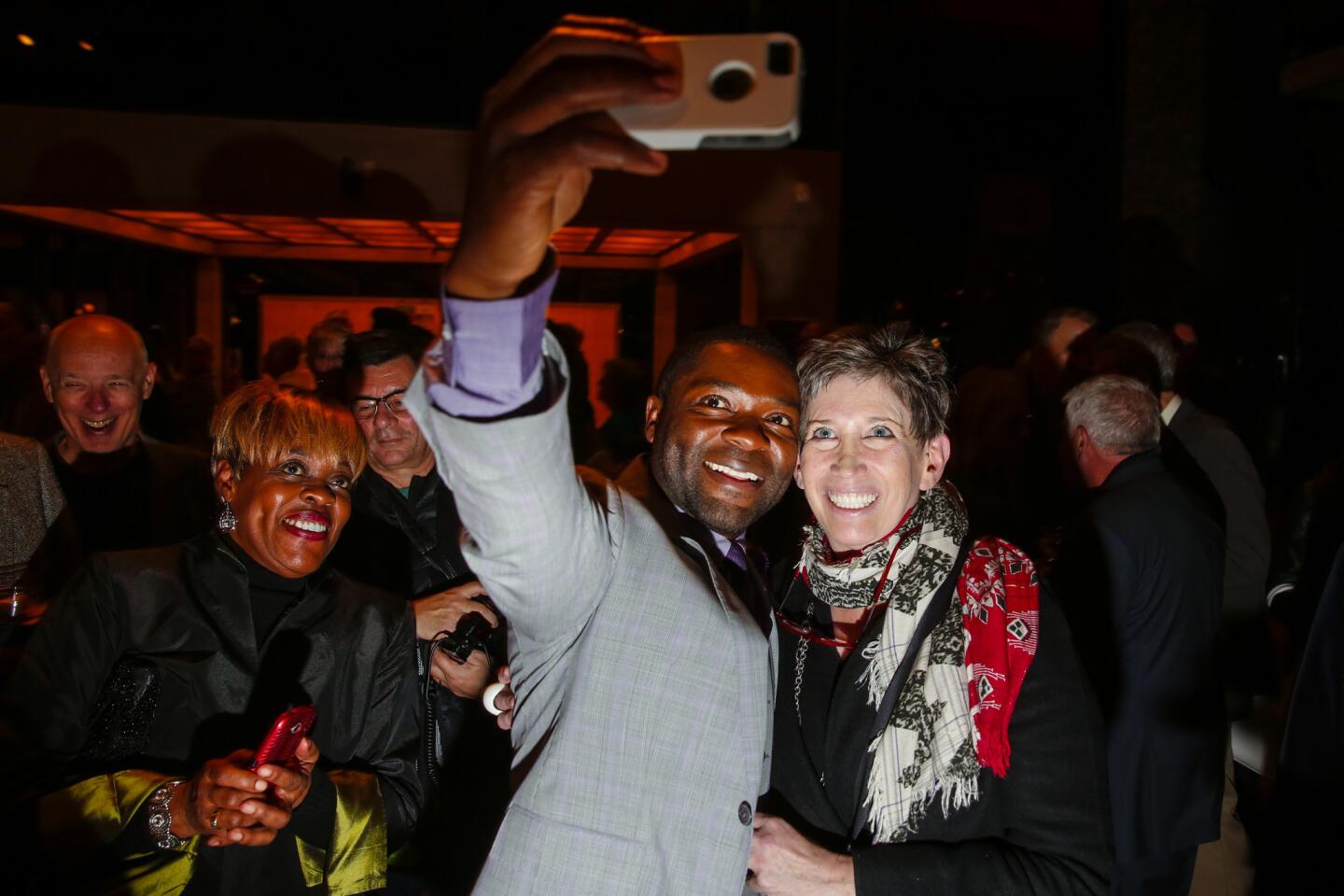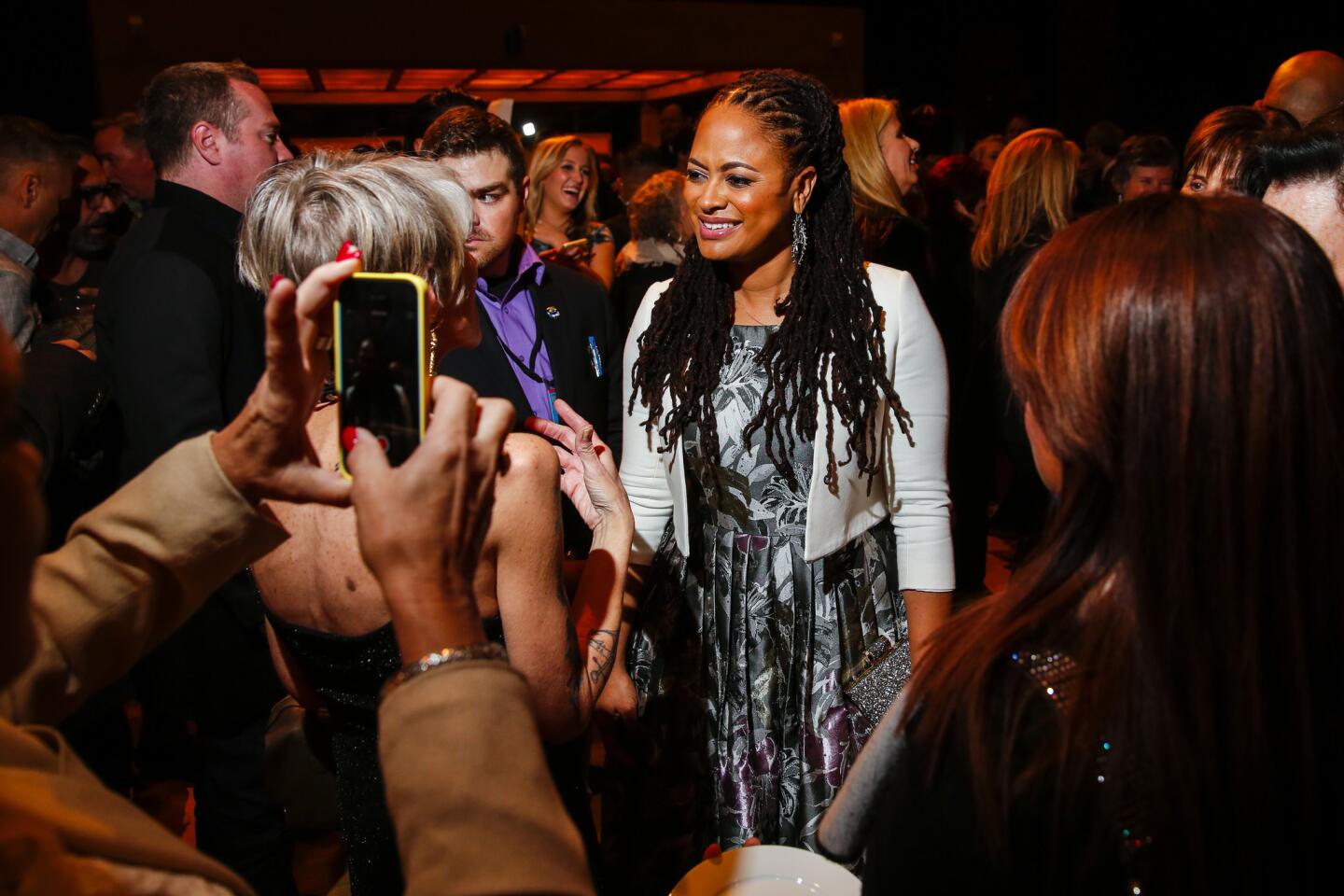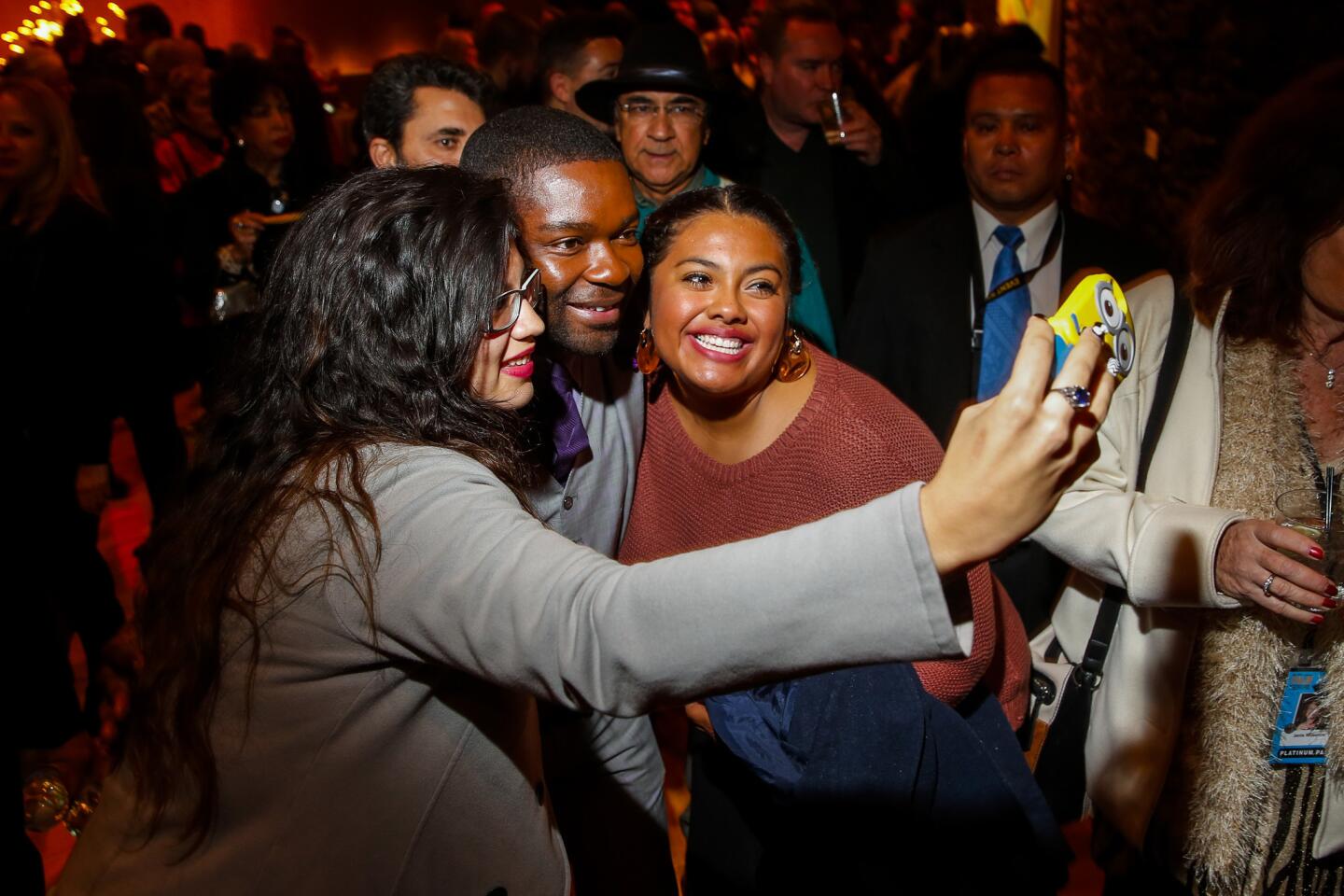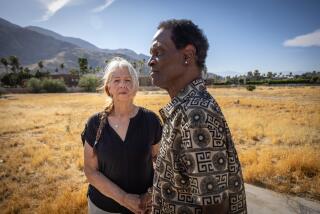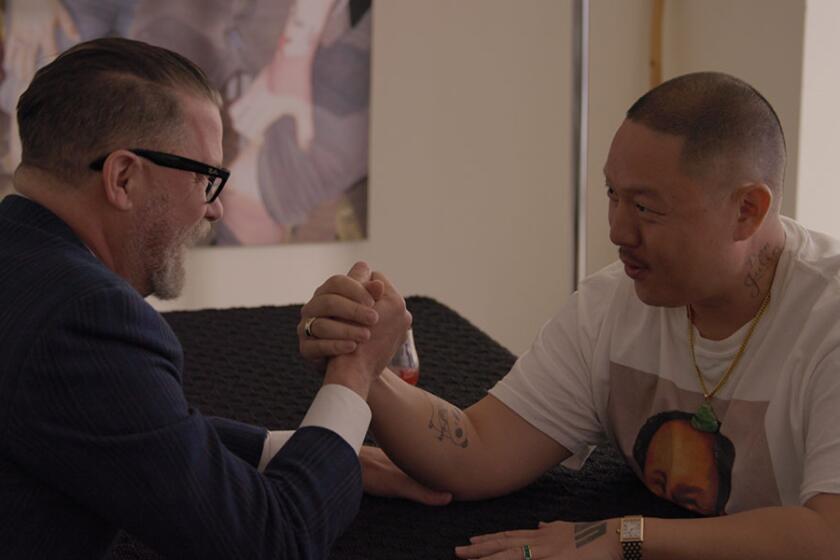Palm Springs Film Fest: ‘Selma’ a powerful opener
The Palm Springs International Film Festival opened Friday with a screening of “Selma” to a packed house in a local high school auditorium.
The Palm Springs festival has become an important piece of the annual awards puzzle, most notably through the gala event that gets the machinery of the season turning again after the holidays and as something of a test run for events to come. “Selma” is a notably big presence at the festival, with talent from the film appearing all through the weekend.
Since it first screened publicly less than two months ago, “Selma” has burst upon the awards season, the news cycle and the popular consciousness with a rare vitality and sense of momentum. Filmmaker Ava DuVernay’s depiction of civil rights protests of 1965 -- and astonishingly the first theatrical feature film to place Dr. Martin Luther King Jr. at its center -- “Selma” has gained resonance from its parallels to current events and has also begun to weather controversy over the accuracy of its depiction of historical events.
Already in limited release on its way to opening nationwide Tuesday, the film has been landing on 10-best lists and has been picking up strength as it picks up more awards, including four Golden Globe nominations. DuVernay, actor David Oyelowo and actor and musician Common, all Globe nominees for the film, were in attendance Friday night for the screening at Palm Springs High.
Friday’s event was a mix of the posh and the homespun. It was a chilly night in the desert, so there were more than a few furs, possibly faux, spotted throughout the upscale crowd, and before the screening an announcement was made for someone to move their Smart car from a fire lane.
Starting the evening, festival director Darryl Macdonald lauded the event, in its 26th edition, for its recent “rebirth” before introducing chairman Harold Matzner.
------------
For the Record
3:27 p.m., Jan 3: An earlier version of the post misspelled the last name of the festival director. It is Darryl Macdonald, not Darryl McDonald.
------------
Matzner rattled off some impressive figures for the festival, including selections from 65 countries and over 130,000 attendees. He in turn introduced the mayor of Palm Springs, Stephen Pougnet.
“I can’t buy the kind of advertising” that comes from the festival, Pougnet said. “I can’t thank you enough as mayor.”
The mayor concluded by noting that he had been told the film was 2-1/2 hours long, so he would keep his remarks brief.
The festival’s artistic director, Helen du Toit, next introduced DuVernay, Oyelowo and Common. DuVernay began by saying, “We don’t have anything prepared, so I’ll speak from the heart. First, we love you mayor, but it’s only two hours long, don’t worry.”
A film publicist before beginning to make films herself, DuVernay noted she first met Du Toit at the Toronto International Film Festival and programmer Carl Spence at the Seattle International Film Festival.
As for McDonald, she said, “He doesn’t remember when he met me, I didn’t tell him before,” while adding, “The story ends well.”
DuVernay first submitted her debut short film to the Palm Springs International ShortFest and was accepted and screened there.
“I have shown my films all over the world since then,” she said, “but it started right here. So thank you.”
Oyelowo next stepped to the microphone to say simply, “We made this film in a spirit of service and love and we hope you receive it as such.”
Common concluded the introduction by saying “‘Selma” has been such a gift in my life and hopefully you all feel that gift and will be inspired to go out and help improve the world. That’s what we’re here for.”
The film played strongly to the crowd, with gasps of shock and upset at scenes of violence building to powerful emotional swells. Oyelowo’s orations throughout the film are simply mesmerizing and held the audience in rapt attention.
At the after-party at the Palm Springs Art Museum, Oyelowo noted how the film has taken on a deeper resonance in light of recent protests against police violence around the country.
“The thing that has been a huge privilege about doing this story is that, considering how formative it is for this nation, so few people know about Selma,” he said.
“They know ‘I Have A Dream’ and they know about the assassination, they may know about Rosa Parks and the Montgomery bus boycott,” Oyelowo said. “I have to be honest, that when we made the film obviously Ferguson hadn’t happened, Eric Garner hadn’t happened, so it’s amazing to have made a film that is meeting the time it’s in in a way that makes it not feel like a historical drama.”
Follow on Twitter: @IndieFocus
More to Read
Only good movies
Get the Indie Focus newsletter, Mark Olsen's weekly guide to the world of cinema.
You may occasionally receive promotional content from the Los Angeles Times.
